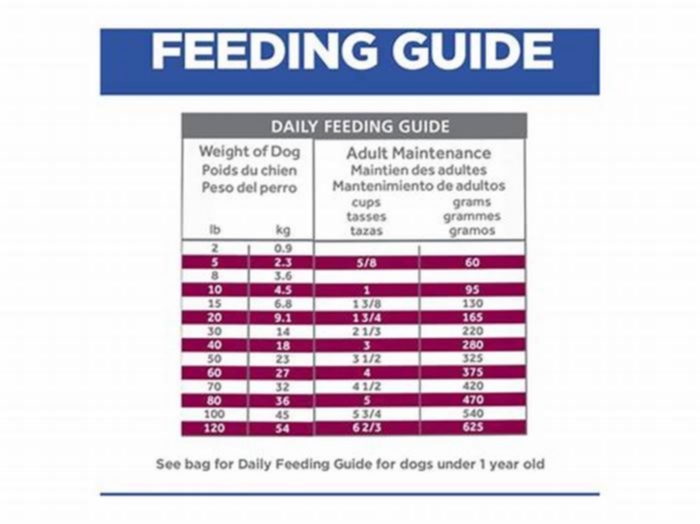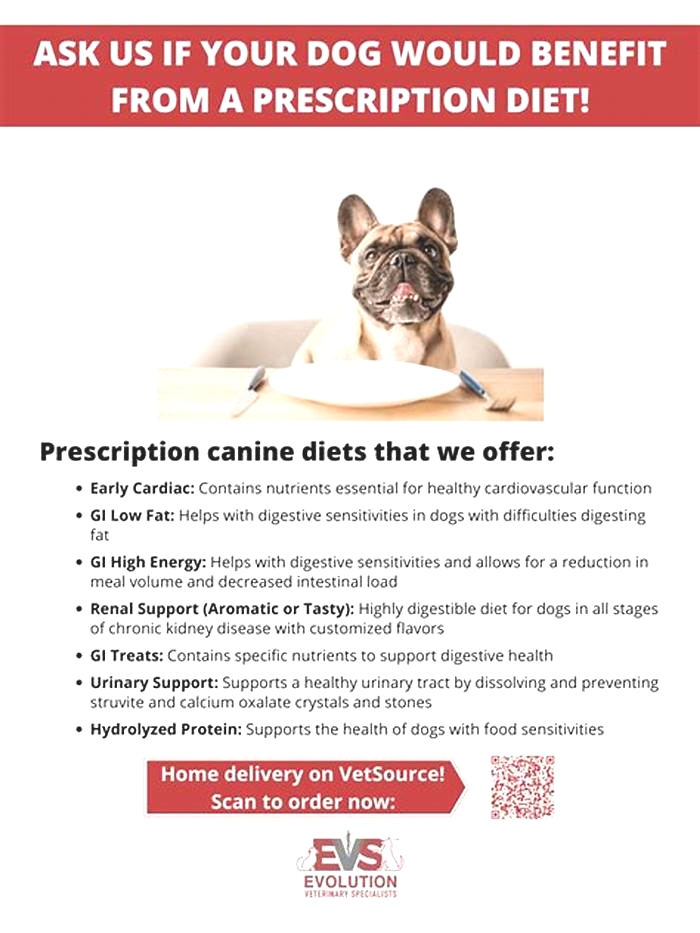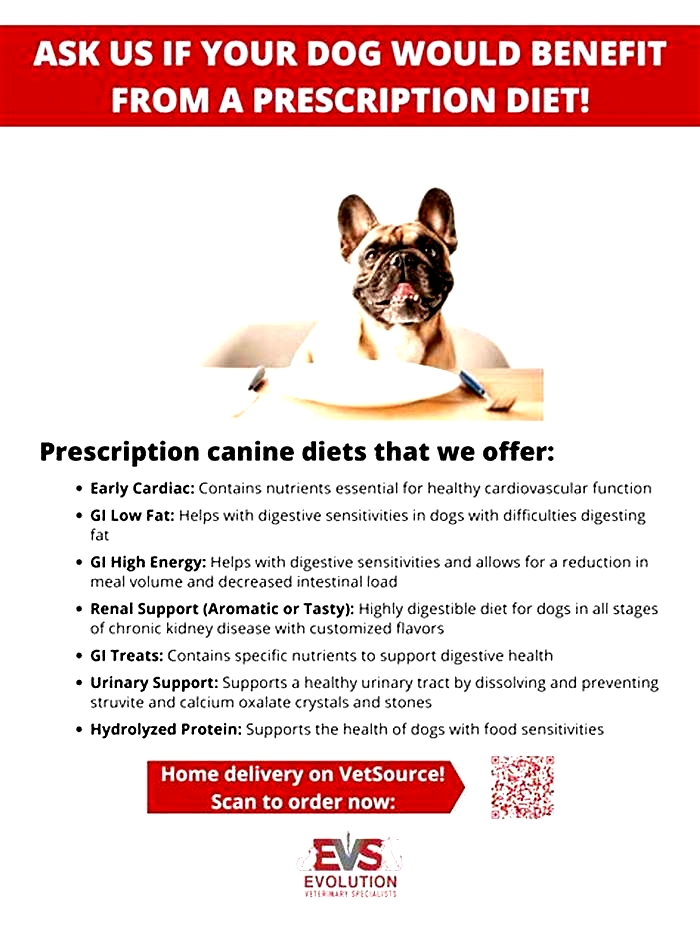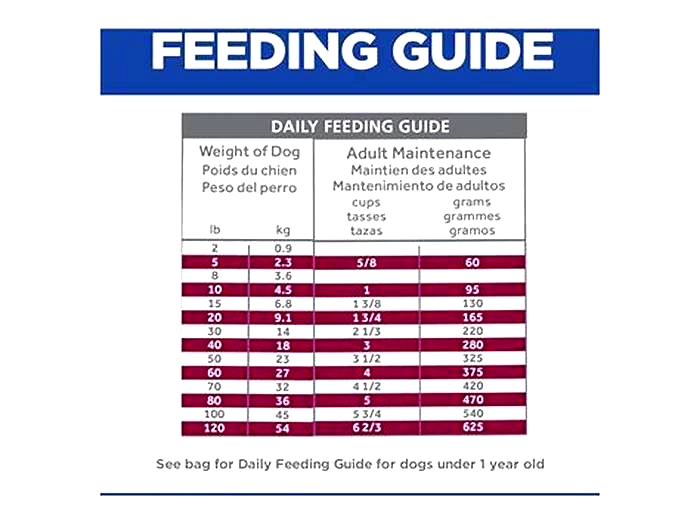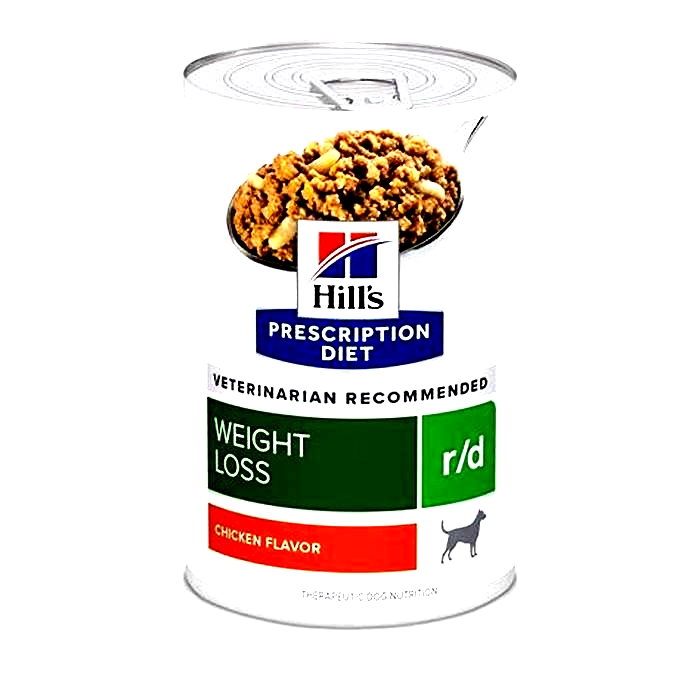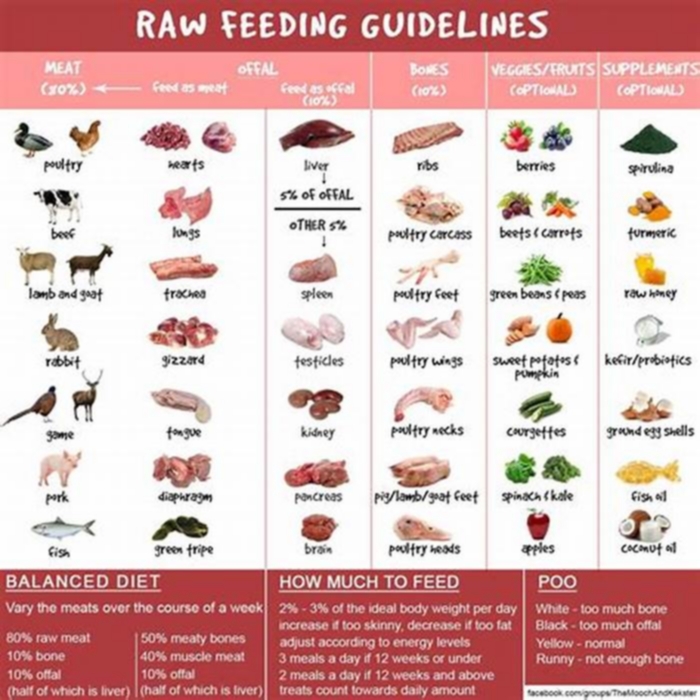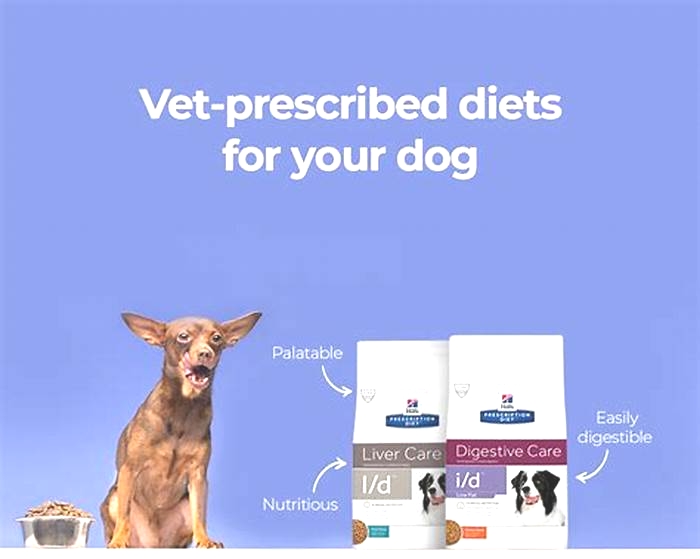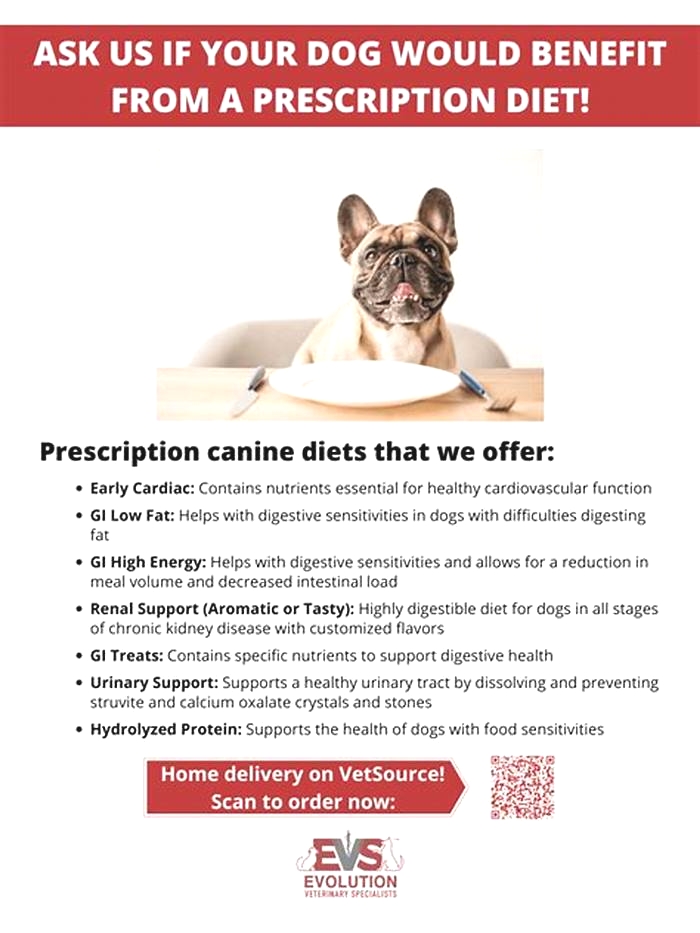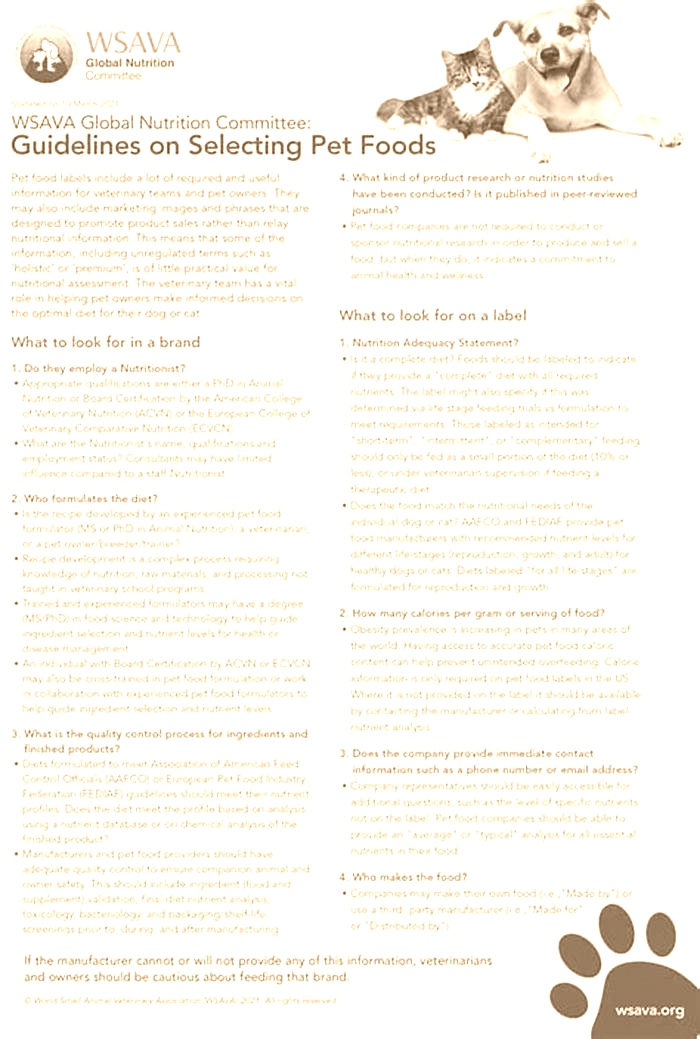Prescription Dog Food A Vet s Guide to Canine Nutrition
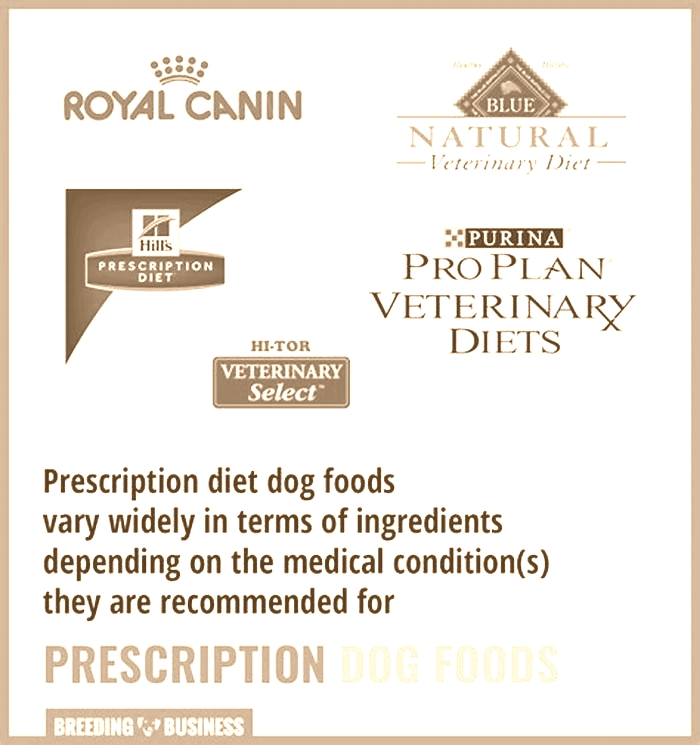
w/d Multi-Benefit Dry Dog Food
INGREDIENTS:Whole Grain Wheat, Powdered Cellulose, Chicken Meal, Whole Grain Corn, Corn Gluten Meal, Chicken Fat, Cracked Pearled Barley, Whole Grain Oats, Chicken Liver Flavor, Dried Beet Pulp, Pork Liver Flavor, Lactic Acid, Soybean Oil, Caramel color, Flaxseed, Choline Chloride, Potassium Chloride, Glyceryl Monostearate, Potassium Citrate, Iodized Salt, L-Lysine, vitamins (Vitamin E Supplement, L-Ascorbyl-2-Polyphosphate (source of Vitamin C), Niacin Supplement, Thiamine Mononitrate, Vitamin A Supplement, Calcium Pantothenate, Riboflavin Supplement, Biotin, Vitamin B12 Supplement, Pyridoxine Hydrochloride, Folic Acid, Vitamin D3 Supplement), L-Tryptophan, Calcium Carbonate, DL-Methionine, minerals (Ferrous Sulfate, Zinc Oxide, Copper Sulfate, Manganous Oxide, Calcium Iodate, Sodium Selenite), Taurine, L-Carnitine, Mixed Tocopherols for freshness, Natural Flavors, Beta-Carotene.
Which Diet did your Vet Prescribe?
Your veterinarian knows your dogs detailed health requirements. Consult with your veterinarian to find out which of these support diets are recommended for your dog.
Tell Us About Your Dog
Let Us Make Some Calorie Calculations to Help You Pick a Fresh and Healthy Recipe.
Feeding CalculatorVet-Prescribed Dog Food
Our vet support diets are the #1 veterinary recommended fresh food, as determined by an independent national survey of 16,000 veterinarians. This is because a whole-food diet is never more important than when you need to maintain your pets health. Our comprehensive line of whole-food prescription dog food is designed to help pets live their healthiest lives possible.
Our veterinary team, including board-certified specialists in nutrition, toxicology, and dermatology, has developed eight veterinary support diets for dogs. These prescription dog food recipes are explicitly formulated to meet the critical nutritional requirements of dogs and are prescribed by veterinarians based on their patients needs. All our vet support diet dog foods have been formulated for the long-term nutritional management of your pets health under the direction of your veterinarian. In addition, we can work with your veterinarian to create acustomized diet for pets who have specific health requirements or special complex needs.
Prepared in small batches in our open-to-the-public Kitchens, our prescription dog food is made from only the finest meats and the highest-quality produce; all the same wholesome food we choose for ourselves. Also, the proprietary Nutrient Blends used in our vet dog food meet or exceed the strictest certifications and requirements set forth for human nutraceuticals. We also regularly test our food through independent human food laboratories.
In addition to our vet-diet dog food, our exclusive line of veterinarian-developed dietary supplements for dogs addresses the most common ailments faced by our four-legged friends. We also offer fresh cat food for your favorite feline. Ask your veterinarian how one of our veterinary support diets can support your pets health today.
5 Things to Know When Feeding Your Dog Hills Prescription Diet
The following article was written in partnership with Hills.
Precisely balanced nutrition is vital to the overall health and development of dogs, no matter their age, size, breed, or health status. At Hills, we know pets with certain health conditions can benefit from the specialized nutritional support that the Prescription Diet portfolio offers.
How Hills Prescription Diet Dog Food Works
The Hills Prescription Diet brand includes foods aimed to help veterinarians manage a range of health conditions for dogs (and cats). Hills Prescription Diet foods have undergone extensive testing to ensure they meet the nutritional requirements for the specific health condition(s) they are recommended for.
Nutrition can play a role in how veterinarians manage certain conditions. Some examples could include:
Your veterinarian plays an important role in recognizing more or less subtle conditions that can benefit from therapeutic nutrition.
Your Vet Can Determine If Your Dog Needs a Hills Prescription Diet
To determine if your pet should eat a Hills Prescription Diet food, your vet will start with a thorough physical exam and ask you questions about your dogs lifestyle and behaviors.
After the exam, they may recommend additional diagnostics (such as blood work, cytology, urinalysis, or diagnostic imaging) to help properly diagnose your pet and rule out other conditions. This will help your vet formulate a comprehensive care plan, including a nutritional recommendation.
In my experience as a practicing veterinarian, the cases where nutrition is most frequently recommended are when the dog has an underlying condition related to any of the following conditions: urinary care, kidney care, skin/allergy care, weight management, and digestive care.
Hills Prescription Diet and Obesity in Dogs
When it comes to weight loss, its important to look at everything the pet is eating during the day. The easiest place to start is cutting out any extra calories like treats and table scraps.
However, most pets that are carrying excess weight do not benefit from caloric restriction from treats alone. In fact, just feeding a pet a smaller amount (or fewer calories) of their normal food is not recommended and may lead to nutritional deficiencies.
Several Hills Prescription Diet foods are specifically formulated to help your pet lose weight. Wherever you see Metabolic or + Metabolic, this means that the food contains our synergistic blend of fibers from fruits and vegetables that activates the bodys natural ability to burn excess fat rather than store it.
This means that your pups metabolism will act more like the metabolism of a lean pet while ensuring that their nutritional and caloric needs are being met.
Results with Hills Prescription Diet
Every pet and health condition is unique and may respond differently when fed Prescription Diet foods. However, Hills performs extensive research and clinical studies to create specific and relevant product claims for Prescription Diet products.
To learn more about research conducted and results seen in our clinical studies for specific foods, visit hillspet.com or talk to your veterinarian.
Always talk to your veterinarian about their expectations and any important milestones to look for when giving your pet a Prescription Diet food.
Work with Your Veterinarian When Introducing a Hills Prescription Diet
Its important to work closely with your veterinarian when switching your pup to a new food. Your veterinarian will help you determine how much your pet should eat based on the specific food and your pet's ideal weight and lifestyle. Youll work together to create a feeding transition plan prior to switching to the new food.
Its important that the feeding transition is slow and gradual to ensure that your pet will eat the new food and reduce the chances of any GI upset. We recommend seven to 10 days to fully transition to the new foodbut for pickier patients, it may take longer.
Therapeutic nutrition can play an important role in managing your pets health. These foods have undergone extensive testing to ensure that they are precisely balanced and are an appropriate part of your veterinarian's treatment plan to manage your pets health condition.
Since these foods are only fed under the recommendation of your veterinarian, be sure to ask at your next appointment if a Hills Prescription Diet product is right for your pet.
Hills Prescription Diet FAQs
Do I need a prescription for Hills Prescription Diet?
Prescription Diet foods do not require a traditional prescription, but they do require a recommendation and approval from a licensed veterinarian. Schedule an appointment to ask your veterinarian to assess your pets health and nutritional needs.
How long can a dog be on Hills Prescription Diet?
Your veterinarian will advise what feeding plan is best for your pets nutritional needs. The majority of Prescription Diet products are suitable for long-term feeding.
How long does it take for Hills Prescription Diet to work in a dog?
Every pet and health condition is unique and may respond differently when fed Prescription Diet foods. However, Hills performs extensive research and clinical studies to help demonstrate the efficacy of many Prescription Diet products.
Always talk to your veterinarian about their expectations and any important milestones to look for when feeding a Prescription Diet food.
My pet is picky. Can I mix in other foods with the Prescription Diet food?
Never feed or supplement other foods without checking with your veterinarian first. When your pet is eating a Prescription Diet, it is important to feed only that food for optimal compliance to your veterinarians treatment plan.
If youre worried that your pet will crave more variety, talk to your veterinarian about what other flavor or form options (such as dry, stew, or pt) are available.
Featured Image: iStock.com/VYCHEGZHANINA
WRITTEN BY
Kristin Wuellner, DVMVeterinarian
Dr. Kristin Wuellner is a fun-loving veterinarian with interests that extend beyond the exam roomshes passionate about how client...
Hypoallergenic Dog Foods: The Vets Buying Guide for Pet Owners
Most of us are already familiar with hypoallergenic products for humans cosmetics, shampoos, and the like, but how much do you know about hypoallergenic dog foods?
What exactly is a hypoallergenic diet, when is it needed, how can it help dogs with certain health conditions, and finally, how do you pick the right type of hypoallergenic dog food?
In my practice, I often encounter owners who look to switch their dogs to a hypoallergenic diet due to various issues.
I have previously written about the science of hypoallergenic dog foods and their effectiveness in this article, which I recommend reading to understand better how these diets work.
The article below will explain what you need to know about real hypoallergenic dog foods, what makes them hypoallergenic, and hydrolyzed protein dog food diets.
Whether it's something you need and how to shop for the best brand and avoid any fake hypoallergenic dog foods (of which there are several).
Hypoallergenic Dog Foods 101
We may put on the main reasons dogs a hypoallergenic dog food diet can be lumped into something called an adverse food reaction.
This can either mean an allergy that causes the dog to erupt in skin lesions, ear infections, or gastrointestinal issues like diarrhea or vomiting.
Dogs with primary gastrointestinal diseases such as inflammatory bowel disorder (IBD) can often suffer from adverse food reactions.
 What are allergies in dogs?
What are allergies in dogs?
Allergies happen when the dog's immune system overreacts to an otherwise harmless substance.
Many species, including dogs, can experience adverse allergic reactions.
The immune system is programmed to recognize and eliminate threats to the body, such as bacteria, fungi, and viruses.
When allergies occur, the dog's body is essentially tricked into thinking that a harmless substance is a threat.
The fallout causes uncomfortable inflammation and subsequent disease.
Pollen, mold spores, and even dust mite dander are common allergens (called antigens) that are otherwise harmless, but some pets' immune systems dont see it that way.
Food allergies in dogs occur most commonly due to an overreaction to specific animal source proteins or carbohydrates in the diet.1
However, food intolerance in dogs that leads to an adverse food reaction is more common than a true food allergy.
Only about 10-15% of dogs develop a true food allergy. The most common antigens in dog food include proteins from chicken, beef, soy, dairy, and egg.1
If a dog develops an allergy to a carbohydrate source, such as wheat, that means they are allergic to the protein component of the wheat.
Why certain bodies develop allergies and others dont remains a medical mystery.
However, we know we can reduce the likelihood of pets having these uncomfortable and dangerous reactions by feeding specific hypoallergenic dog food diets.
Dog food allergies or adverse food reactions are often diagnosed by what is called an elimination diet.
In these diet trials, the dog is fed either a hypoallergenic dog food brand or a single-source protein/carbohydrate diet for 6-8 weeks.
An adverse food reaction can be diagnosed if the dog develops symptoms after returning to its normal diet.
Dogs diagnosed with adverse food reactions often must eat a hypoallergenic diet for the rest of their lives.
This isn't a big deal, but it may be more costly to a pet owner since some hypoallergenic dog food brands are more expensive.
How can hypoallergenic dog foods help my dog?
Switching to an appropriate hypoallergenic diet will eliminate most or all allergy symptoms in your dog. This may take a little bit of trial and error.
Over time, hypoallergenic dog foods can help manage your dogs chronic itchy skin or ears, making them overall more comfortable.
It can also reduce their dependence on antihistamines, steroids, and antibiotics.
Dogs with chronic gastrointestinal problems can experience more firm stools and better weight maintenance.
We will explain how to shop for the best hypoallergenic dog food brand for your dog.
But if you are concerned about your pet or are interested in this diet, please consult your veterinarian for details beforehand.
When is dog food considered hypoallergenic?
Hypoallergenic means below allergenic.
When it comes to hypoallergenic dog foods, this term basically means that the structure of the potential allergen in that specific dog food recipe is so small that your dog's immune system cant detect it.
Several diets on the market fall into the hypoallergenic category.
They have all hydrolyzed protein diets, which makes the potential offending protein structure very small and much less likely to evoke a reaction from the dog.
This is what hydrolyzed protein looks like:

Even though it's marketed differently, veterinary experts prefer to call these hydrolyzed diets instead of referring to them as hypoallergenic dog foods.
According to Dr. Joe Bartges, a board-certified veterinary internist and nutritionist, proteins are hydrolyzed for hypoallergenic dog foods because that disrupts protein structure in the food formula.
That removes any existing allergenic epitopes and allergens. This way, it prevents the dog's body from recognizing that protein.
Proteins with molecular weights of over 18,000 daltons are well-known to be the most antigenic.
Thus modification of proteins to compounds having lower molecular weight may be of benefit.
When the average weight of the protein molecule is reduced to less than 18,000 daltons, that protein source is hypoallergenic.2
Even with the adjustments, all hypoallergenic dog foods are well-balanced and nutritionally complete for dogs to consume.
Furthermore, consuming protein hydrolysates results in a quicker absorption of amino acids compared to whole proteins' absorption rate.
ALSO READ: Ask a Vet Does Hypoallergenic Food Really Works?
Hypoallergenic Dog Food A Catch-All Buzzword
As a pet owner, you must be careful when shopping for hypoallergenic dog foods, as this term is often misused.
Limited-ingredient diets are not necessarily hypoallergenic.
Sometimes, it may be necessary to consider a prescription hydrolyzed hypoallergenic dog food instead of an over-the-counter limited-ingredient diet.
It's less likely to be contaminated with allergens. Unfortunately, those are likely to be more expensive.
In a recent study, 12 commercial dog food products were tested for DNA of animal origin using PCR testing.4
The DNA included chicken, turkey, beef, mutton, and pork. In 9 of 10 over-the-counter (non-prescription) limited-ingredient dog food diets, DNA of one or more animal species other than what was declared on the label was found.
The most common contaminants were beef and pork.
Two prescription hydrolyzed diets tested in the study only contained DNA of the animal declared on the label.
Hydrolyzed diets provide short- and long-term, balanced nutrition for adult and senior dogs.
Most commonly vet-recommended hypoallergenic dog foods are available from the three largest prescription diet companies that spend the most on research and science-based recipe formulations: Royal Canin, Hills Science Diet, and Purina.

All these diets are very similar, so you may often benefit more by simply choosing the cheap hypoallergenic dog food brand from either of these manufacturers.
However, discussing with a vet is essential.
If your veterinarian recommends one over the other, it is most likely due to geographical availability and personal clinical experience using the diet with other dogs.
Here are some examples of vet-recommended hypoallergenic dog foods:
If your dog has multiple health issues, such as food intolerance and urinary tract problems like struvite bladder stones, it is possible to feed a diet that supports food sensitivities and urinary health.
There are several recipes available, but here's one vet recommended:
Royal Canin Veterinary Diet Multicare Urinary and Hydrolyzed Protein
Ingredients include brewers yeast and hydrolyzed soy protein.
This diet also includes Royal Canins Urinary SO Index, which promotes a urinary environment unfavorable to the development of struvite and calcium oxalate crystals.
If your pooch is not a big fan of dry kibble, dont despair.
Royal Canin and Hills Science Diet provide canned versions of their hydrolyzed diets, particularly those mentioned above.
What About Hypoallergenic Dog Treats?
If your dog has now switched to hypoallergenic dog foods, complimentary hydrolyzed protein treats are also available and recommended.
If you feed one particular hydrolyzed diet brand, stick with one from the same company.
For example, if you feed Royal Canin Hydrolyzed Protein PS food, select Royal Canins hydrolyzed protein hypoallergenic dog treats.
Remember to stick with a hydrolyzed protein dont be tempted to switch to something else like venison or salmon, even if the label says it's hypoallergenic.
Vet recommended hypoallergenic dog treats that are commonly available:
Semi-Homemade Hypoallergenic Dog Treats
If hypoallergenic dog treats are unavailable or too expensive, you can try making your own.
Top Dog Tips has a large database of homemade dog treat recipes.
But you can easily do this by purchasing a complimentary hydrolyzed protein hypoallergenic canned dog food diet.
For example, if you already switched your pooch to hypoallergenic dog foods, and now he eats Hills z/d dry, you can purchase a can or a bag of Hills z/d formulaand make treats out of it.
The process is simple:
Roll out the canned dog food into a thin layer using your hands. Cut out the canned food into shapes of your choice. Stars, small circles, or dog bones.
Using a food dehydrator or an oven at low temperatures (200 F or 93 C), bake the treats on parchment paper for 1 to 2 hours.
Cooking time depends on the size and thickness of the treat.
Check on them every 30 minutes until they are dry and crunchy. Store in a zip-top bag in the refrigerator for up to 2 weeks.
RECIPE:Hypoallergenic Homemade Dog Food
Hypoallergenic Dog Foods: The Bottom Line
Real hypoallergenic dog foods made with hydrolyzed proteins can make a big difference for certain dogs.
Keep in mind that these diets are very similar across the board, and sometimes, it's not worth paying extra for a more expensive brand.
That said, remember that some hypoallergenic dog foods are also not what they seem to be.
If your dog is very strongly allergic to chicken, it may be wisest to select a hydrolyzed soy protein diet instead of a chicken-based diet.
Some diets may be available in your area while others won't, and your veterinarian may let you know about this.
The reason is that it's more expensive for the company to stock hypoallergenic dog foods everywhere since they're not very popular to buy.
Many veterinarians will recommend one brand over another based on their personal clinical experience.
If your veterinarian has had good results using a particular brand, consider giving it a try, but don't hesitate to get a second or third opinion either.
REFERENCES
- Datz, C. Nutritional Management of Allergic Dermatoses. ABVP Proceedings. 2015.
- Bartges, J. Inflammatory Bowel Disease: Nutrition in the Pathogenesis and Management. ACVIM Proceedings. 2016.
- Rosser, E. Update on Diagnosing and Treating Food Allergies in Dogs. Central Veterinary Conference Proceedings. 2013.
- Horvath-Ungerboeck, Windmann, Handl, et al., Detection of DNA from undeclared animal species in commercial elimination diets for dogs using PCR. Vet Dermatol. August 2017:28(4):373-e86.
- Cave NJ.Vet Clin North Am Small Anim Pract. 2006;36(6):1251.
- Puigdemont A,et al.Am J Vet Res. 2006;67(3):484.
- Lan A,et al.Inflamm Bowel Dis. 2015;21(1):198.
Disclosure: Wemay earn affiliate commissions at no cost to you from the links on this page. This did notaffect our assessment of products.Read more hereand findfull disclosure here.
Want to share this?


